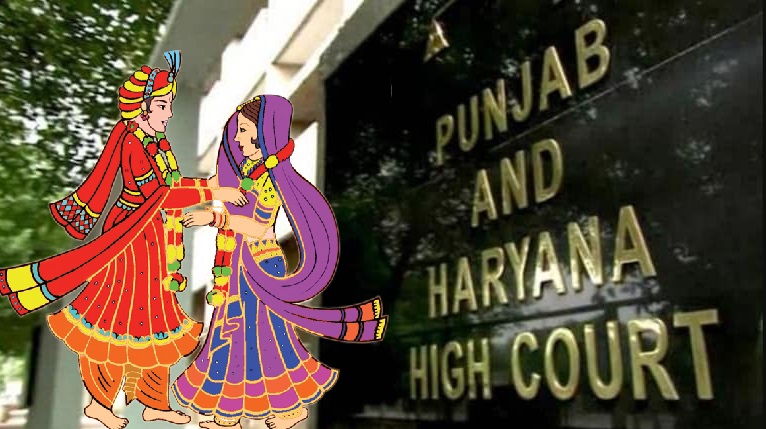
The Punjab and Haryana High Court has held the marriage between a Hindu man and a Muslim woman to be invalid, as all wedding ceremonies and rites were in accordance with Hindu traditions without the woman converting to Hinduism before solemnisation.
The Single-judge Bench of Justice Arun Kumar Tyagi however held that since both were adults, they are entitled to stay together in a live-in-relationship in the nature of a marriage and are also entitled to protection of their life and liberty.
The court was hearing the couple’s (petitioners) plea seeking protection after getting married on January 15 at Shiv Mandir, Village Durana, as per Hindu rites and ceremonies against the wishes of their family members. They sought necessary protection but submitted that no action has been taken so far in the matter and prayed for issuance of direction in this regard.
The court observed, “In the present case, petitioner No.1, who is Muslim, performed marriage with petitioner No.2 in accordance with Hindu rites and ceremonies, which will, prima facie, be not valid as admittedly petitioner No.1 did not convert to Hindu religion before solemnization of marriage in accordance with Hindu rites and ceremonies.”
The court added, “However, petitioner No.1 being major is entitled to live with a person and at a place of her choice and both the petitioners will be entitled to live in live-in-relationship in the nature of marriage and also to protection of their life and liberty.”
The court directed the Superintendent of Police, Ambala City to look into the couple’s grievances and take appropriate action for “protection of their life and liberty as may be warranted by the circumstances.”
The Punjab and Haryana High Court has been seized with many similar cases in the recent past. While dealing with a plea of two live-in partners, the High Court refused to grant them protection because their live-in relationship contract clearly mentioned that it was not a marital relationship. The Bench of Justice Arvind Singh Sangwan deemed the clause a “misuse of process of law as it cannot be morally accepted in society”, reported SabrangIndia.
Ironically, another Bench of the same court considered the large volume of petitions filed by couples apprehending threat to their life and liberty, and suggested that these matters be dealt with in a time bound manner. Justice Avneesh Jhinghan suggested that both states, and the Union Territory of Chandigarh should provide safe houses for inter-caste or inter-faith couples apprehending threat, so that they do not have to approach the court each time.
The order may be read here:
Related:
Punjab and Haryana HC suggest safe houses for inter-caste couples
Punjab and Haryana HC refuses to grant protection to live-in couple
Major couple even if not of marriageable age can live together: Punjab and Haryana HC